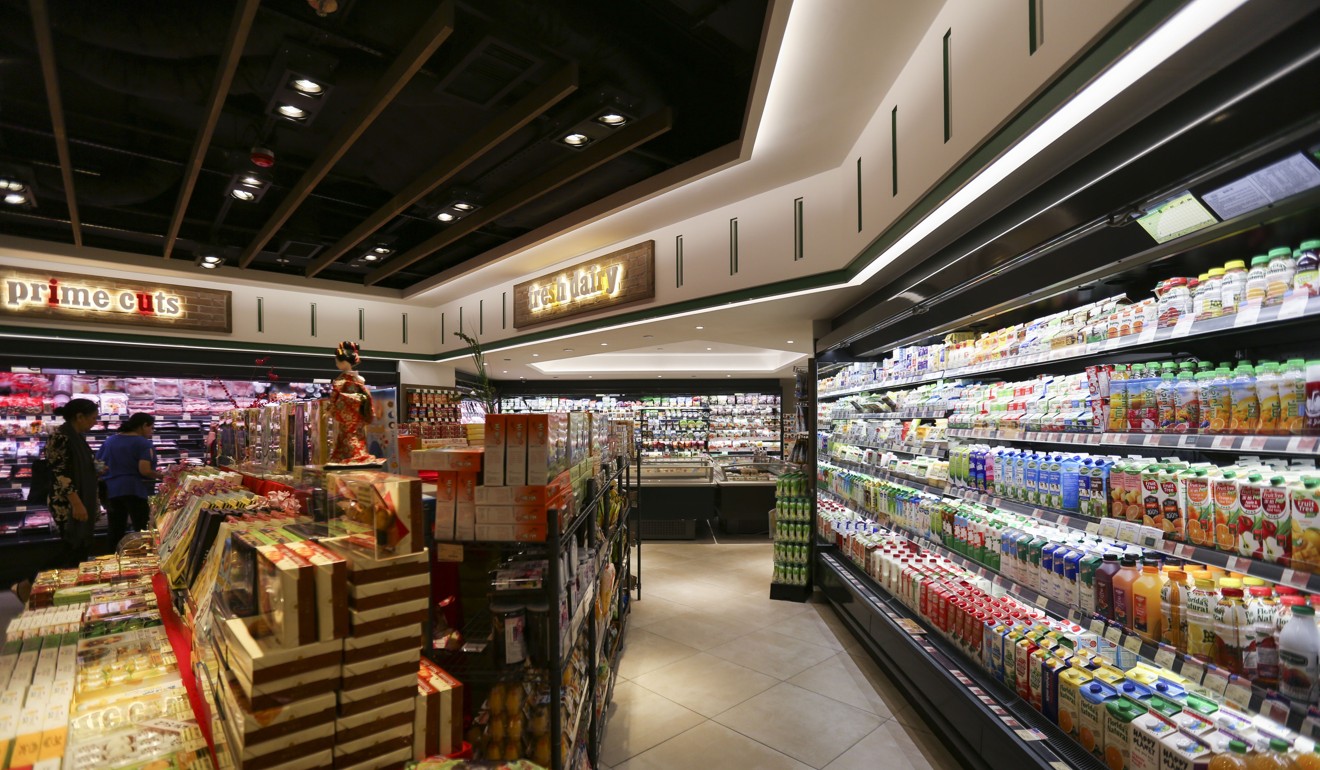
That supermarket deal might not be the bargain you thought it was, says Hong Kong Consumer Council as it suggests city’s retailers mislead shoppers
- Watchdog reveals price comparison tricks businesses use to get people to buy goods on sale
- Council urges Customs and Excise Department to take action after first raising issue five years ago
Hong Kong’s consumer rights watchdog has said supermarkets in the city are still using misleading sales tactics, and risk breaking the law over their price comparison stickers.
In two recent surveys, supermarkets were found to have displayed two prices on a variety of products, the standard price, which was often struck through, and a promotional price, which was usually displayed in a bigger, bolder font.
However, in most cases the product in question had not been sold at the standard price for more than 30 days.
The watchdog urged the Customs and Excise Department to devise clear and specific enforcement guidelines for sales promotions, and pointed to Britain and Singapore as examples of countries that have clamped down on the practice.

“Terms used by traders such as standard price, or retail price, have no standard definition,” said Clement Chan Kam-wing, the council’s head of publicity and community relations.
“This is not only a potential infringement of the Trade Descriptions Ordinance, but is also detrimental to consumers’ rights to access accurate information for making informed decisions.”
In the surveys of 42 popular items, the council found that on average 32, or more than 75 per cent of the total items, had not been sold at their standard price within the previous 30 days.
The surveys were conducted in 16 outlets of four major supermarket chains, Aeon, Market Place by Jasons, ParknShop, and Wellcome, between April and mid-July.
The standard price may even be inflated to created an impression of a big discount
In Market Place and Wellcome, nearly 90 per cent of the 42 surveyed items were subject to the price-comparison tactic, and 84 per cent of the reduced items had not been sold at the standard price in the previous month.
In ParknShop, the two percentages were 55 per cent and 78 per cent, while in Aeon, they were 48 per cent and 20 per cent.
“Some examples clearly show that standard prices are not the original prices, and in fact, the standard price may even be inflated to created an impression of a big discount for promotional purposes,” the council’s report said.
New study shows shoppers are wasting their money on priciest air conditioners
One of the examples was a 12-can pack of soft drinks in Market Place, and Wellcome. The standard price was adjusted from HK$94.8 to HK$99.9, but the pack had not sold at either of those prices during the survey period.
Instead, the actually selling price remained between HK$37.9 and HK$42.9.
When asked by the council how they came up with their standard prices, Market Place, Wellcome, and ParknShop said “market factors” and “consumers’ needs” were taken into account.
Meanwhile, Aeon said their standard prices were the “retail prices suggested by suppliers”.
However, traders are required to clearly show the definition of the standard prices, according to the Enforcement Guidelines for the Trade Description Ordinance.
If the standard price refers to the original price, retailers must sell the item at the standard price for a reasonable period of time.
Yet the duration of the “reasonable period” is not stipulated, which provided a basis for misleading price reduction that the Consumer Council first warned about five years ago.
“There is no way to discuss effectiveness of law enforcement because we don’t even have the law,” Chan said.
Since the ordinance was enforced in 2013, the Customs and Excise Department received 477 complaints related to pricing issues in supermarkets until this June, among which 19 were subject to follow-up investigation, and 10 resulted in prosecution, said Gilly Wong Fung-han, the council’s CEO.
Wong said the council did not have a recommendation on the length of the reasonable period, but overseas examples such as Britain and Singapore could be taken for the enforcement authority’s reference.
In the UK, the duration of the reduced price must not exceed that of the higher quoted price. In Singapore, the higher quoted price must have been used for a minimum 28 consecutive days in the previous six months.

